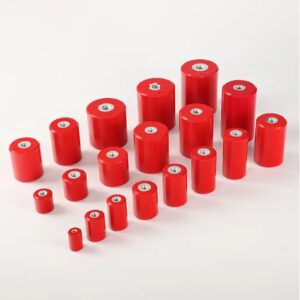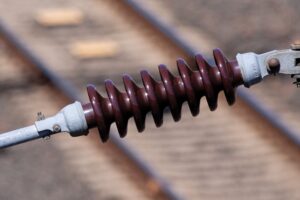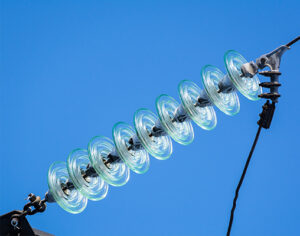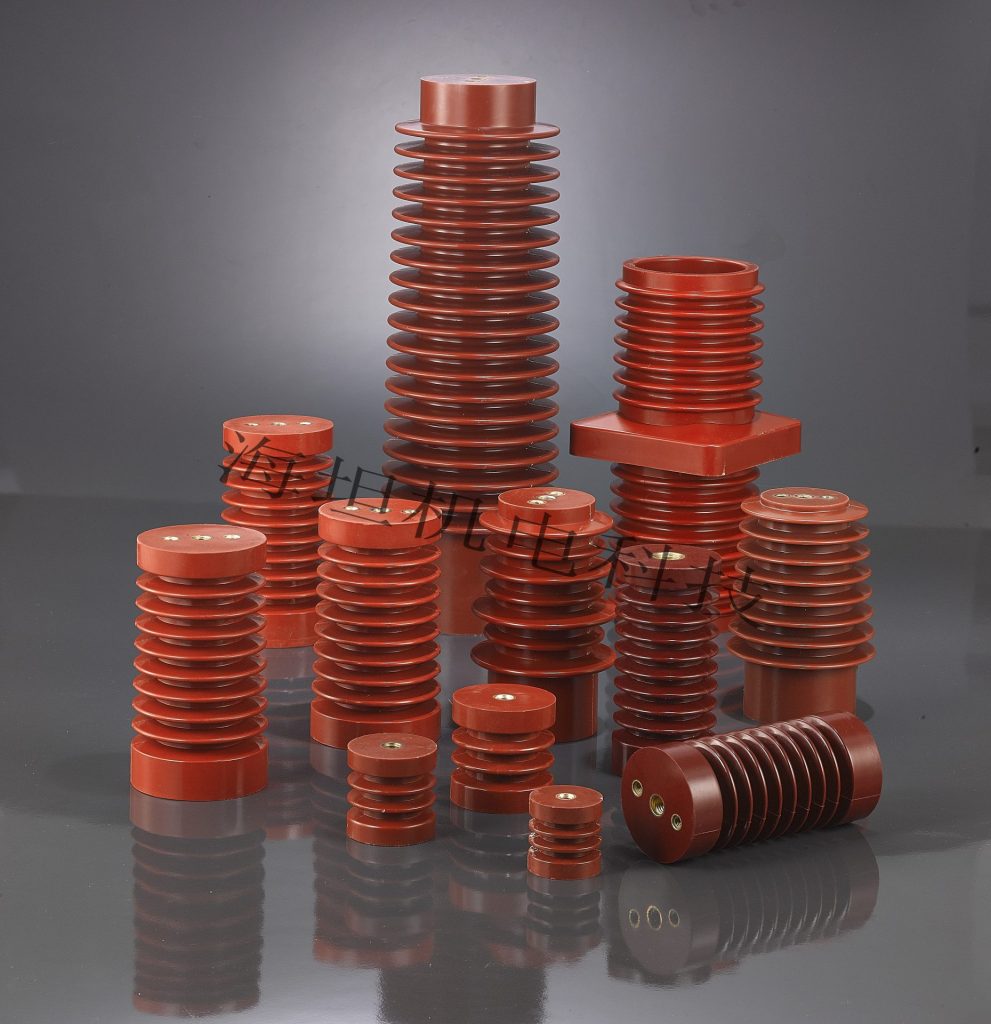MNS Insulator Guide
1. What are MNS Insulators?
MNS insulators are found in the power system everywhere. The primary purpose of the device is to insulate and mechanically support various pieces of equipment in the power system, prevent current leakage, and short circuits, and finally, ensure the safe and reliable power transmission. MNS insulators are usually made of ceramics, glass, silicone rubber epoxy resin, or other materials. The insulating materials are characterized by good insulation performance and are essentially non-conductive, which is the major reason they can be used in electronics and electricals. To sum up, MNS insulators in fact have been widely used in high-voltage transmission lines, substations, and other power equipment. Their good Insulation properties guarantees the safety and reliability of the power supply system.
2. Classification of MNS insulator materials
Insulators are usually made of high-strength, high-performance insulating materials. Their insulation capacity is generally determined by the manufacturing material, current and ground spacing, and applied voltage. For example, there are ceramic insulators, glass insulators, epoxy resin insulators, silicone rubber insulators, and composite (polymer) insulators. Insulators can provide reliable mechanical strength while ensuring good electrical insulation performance. Here are several common types of insulator materials:
2.1 Epoxy resin insulator: It is a hard plastic polymer with high electrical insulation ability. The internal molecular structure is tightly bound, which limits the movement of free electrons, thereby playing an insulating role. It is an excellent electrical insulator that can protect electrical components from short circuits, dust and moisture, and can withstand high impact. It is light in weight, strong in strength, chemically stable, heat-resistant, waterproof, and environmentally friendly. It quickly occupies a pivotal position in the insulator market. More and more companies and customers are choosing epoxy resin insulators as their first choice. In addition, epoxy resin has good plasticity and can be cast into almost any shape and size you want, so it is very suitable for customer-specific insulation solutions.

Source: cnhaitan
2.2 Ceramic insulators: The earliest material used to make insulators. Insulators made of this material are mainly used in high-voltage transmission lines and substations. However, due to the high density, heavy weight and easy breakage of ceramics, special care must be taken during transportation and installation.

Source: wikipedia
2.3 Glass insulators: The surface is smooth, not easy to accumulate dust, and can maintain good performance in harsh environments, but it is brittle and easy to break when impacted, and has instability.

Source: orientinsulators
3. Types of MNS insulators
MNS insulators can be classified according to different standards and can be divided into many types. The following are some common types:
3.1 Post insulators: Mainly used in switch cabinets and related power equipment in substations, power stations, and distribution stations, as support and fixation of electrical equipment conductors. They are usually made of high-performance ceramics or composite materials, with good insulation performance, mechanical strength, and pollution resistance, ensuring the reliable operation of power equipment.
3.2 Composite insulator: It is mainly composed of two or more different materials. The most common ones are silicone rubber or epoxy resin on the outside and reinforcing materials such as glass fiber on the inside. This design structure makes it light, pollution-resistant, and anti-aging. It can be used in various harsh environmental conditions, such as ultraviolet radiation, chemical corrosion, and mechanical impact. It is currently widely used in coastal areas and areas with severe industrial pollution.
3.3 Suspension insulator: It is mainly used in overhead transmission lines. Depending on the use environment, the design appearance is also inconsistent to meet different line load requirements. The suspension insulator can be made of ceramic or composite materials.
3.4 Solid ceramic insulator: It is usually used in high-voltage power systems, especially in applications requiring high insulation strength. Solid ceramic insulators are the most traditional type of insulators. They are usually made of porcelain or glass. They have good insulation resistance and good arc resistance. Due to their material characteristics, they are less affected by temperature changes and humidity, so they have high stability and reliability.
Due to different types of insulators, their structures and materials are also different, resulting in different performances of different types of MNS insulators. The following is a performance comparison of several common types of insulators:
| Type | Material | Mechanical Strength (MPa) | Electrical Insulation Strength (KV/cm) | Applicable scenarios | Pollution Resistance |
| Post Insulator | Ceramic/Composite | 160 | 63 | Substations, power stations and distribution stations | Moderate-High |
| Suspension Insulator | Ceramic/Composite | 180 | 65 | Overhead transmission lines | Moderate |
| Composite Insulator | Fiberglass + Silicone Rubber | 200 | 70 | Coastal and industrial pollution | High |
| Solid Ceramic Insulator | Ceramic | 150 | 60 | High voltage power system | Moderate |
4. Application of MNS insulators in power systems
MNS insulators play a vital role in the heart of power systems due to their superior performance. These small but powerful components ensure the safety and reliability of power systems with their excellent insulation performance and mechanical strength.
Substations and power stations:
MNS insulators play a fundamental role in substations and power stations. They support high-voltage wires and electrical equipment, isolate components with different potentials, and prevent electrical faults and short circuits.
Industrial and commercial building power systems:
MNS insulators are also indispensable in the electrical systems of industrial and commercial buildings. They not only protect equipment from voltage shocks, but also ensure the continuous operation of the system and the efficient distribution of energy.
Distribution stations:
As a key node in power distribution, the role of MNS insulators here is to ensure the stability and safety of power supply, while reducing maintenance costs and extending equipment life.
Overhead transmission lines:
Although MNS insulators are more common in switchgear, they can also be used in overhead transmission lines, especially where high mechanical strength and environmental adaptability are required.
Special environments:
In some special environments, such as coastal areas, chemical plants and highly polluted areas, MNS insulators can maintain stable performance under harsh conditions due to their pollution resistance, corrosion resistance and aging resistance. This makes the application of MNS insulators in these environments more and more extensive
5.Development status of MNS insulators in power systems
With the continuous development of the power industry, the requirements for various components and technologies are getting higher and higher. MNS insulators are also constantly innovating in materials and technologies to meet the needs of modern power systems. The following are some trends in the current development of MNS insulators:
5.1 Innovation of materials
In recent years, with the advancement and development of science and technology, MNS insulators have made significant progress in materials. The application of new composite materials has further improved the performance of insulators, especially in terms of lightweight, corrosion resistance and mechanical strength. The innovation of materials not only increases the service life of insulators in power systems, but also reduces maintenance costs, making the use of MNS insulators more extensive.
5.2 Improvement of manufacturing processes
Advanced manufacturing processes provide more possibilities for the production of MNS insulators. For example, the application of injection molding technology has greatly improved the production efficiency of composite insulators, while also improving the consistency and quality of products. In addition, the introduction of automated production lines further reduces the impact of human factors and improves the accuracy and speed of production.
5.3 Environmental protection and sustainable development
With the development of the economy, people’s environmental awareness has gradually increased, and the research and development and production companies of MNS insulators have also paid more and more attention to environmental protection and sustainable development. Measures such as gradually using environmentally friendly materials, reducing pollution emissions in the production process, and improving the recyclability of products are all important directions for developing MNS insulators in the power industry..
5.4 Intelligent development
At present, with the development of society, people’s demand for electricity has soared, and more and more countries and regions have begun to promote smart grids. Therefore, MNS insulators are also developing in the direction of intelligence. At present, some new MNS insulators can monitor electrical parameters and environmental conditions in real time, providing data support for the intelligent operation of power systems. This intelligent development not only improves the safety of power systems and reduces human misjudgment, but also provides new technical means for preventive maintenance. This is also the future development trend of MNS insulators in power systems.
6.Factors for choosing a professional insulator manufacturer
6.1 Qualification certification: Qualification is the cornerstone of quality. First, confirm that the manufacturer has general international certifications such as Rosh, ISO9001, ISO14001, ISO45001, etc. to ensure the quality of its products.
6.2 Technology and innovation capabilities: Technological innovation is the cornerstone of the sustainable development of an enterprise. Only by choosing a manufacturer with strong R&D capabilities and advanced technology can its product performance be excellent and continuously innovative.
6.3 Industry experience: Manufacturers with rich industry experience have more reliable and trustworthy product quality.
6.4 Quality control and testing capabilities: It is an important checkpoint to ensure product quality. It is necessary to ensure that the manufacturer has a complete quality control system and advanced testing equipment to ensure the high quality of the product.
6.5 Customer support and after-sales service: High-quality products + perfect after-sales service are the basic guarantee for long-term cooperation, so it is best to choose a manufacturer that can provide comprehensive after-sales support.
As an indispensable and important component in the power system, MNS insulators are widely used in electrical fields such as distribution boxes, switch cabinets, inverters, green power supplies, etc. It is very necessary to choose a professional MNS insulator manufacturer. China Haitan Electromechanical Technology Co., Ltd. is a professional company established in 1999. It is a powerful enterprise specializing in distribution cabinets and a full set of accessories. It has served the power industry for 22 years and has passed CQC, CCC, ISO9001, ISO14001, ISO45001, Rosh, and CE certifications. Its latest MNS insulators are made of BMC/SMC materials to support circuit systems. High-strength cylindrical insulators, larger inserts bring higher physical strength, a wide range of choices, covering more specifications and sizes, easy to choose, full appearance, giving you a safer and more assured user experience. In the future, with the gradual development of smart grids and new energy, MNS insulators will surely usher in a broader development prospect.
--- END ---
© Copyright 2024 China Haitan Electromechanical Technology Co., Ltd. All rights reserved.SUPPORT BY:JUNJ Privacy Policy

 E-mail:
E-mail:  No. 20 Lingyun Road, Dongfeng
No. 20 Lingyun Road, Dongfeng 
